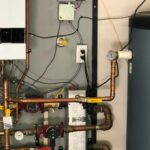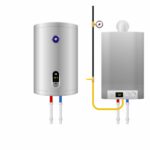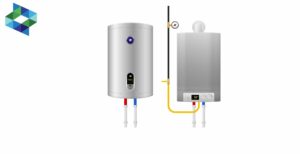Water heaters are indispensable fixtures in our daily routines, serving a vital role by supplying hot water for many household activities, spanning from refreshing showers to efficiently completing dishwashing tasks.
Like any other appliance, water heaters have a finite lifespan, and knowing when to repair or replace them is essential for maintaining a reliable and efficient hot water supply.
This blog will explore the factors influencing the Water Heater Lifespan and the signs indicating whether a repair or replacement is the best course of action.
Understanding the Water Heater Lifespan
The lifespan of a Water Heater is influenced by several factors, including the type of water heater, its design, maintenance, and water quality in your area.
On average, conventional tank water heaters typically endure for approximately 10 to 15 years, whereas tankless water heaters boast a longer lifespan, often reaching 20 years or even more.
However, these are just general estimates, and individual cases may vary.
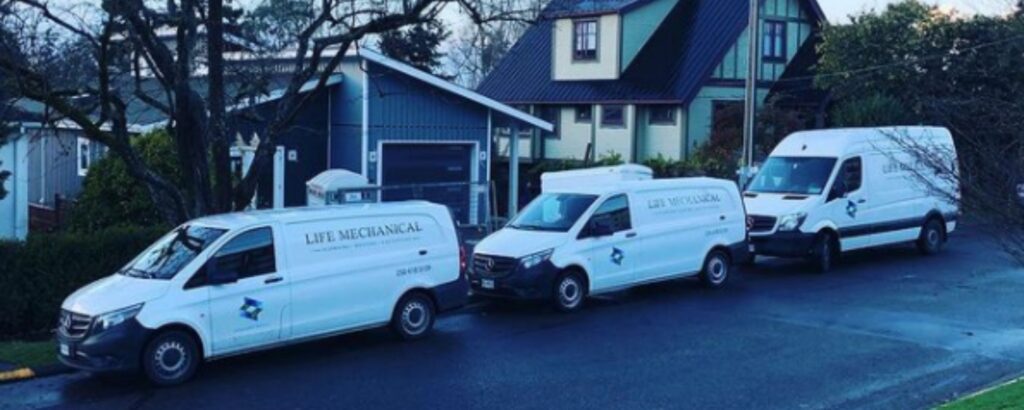
1. Type of Water Heater
- Traditional Tank Water Heaters: Traditional tank water heaters store and heat a specific amount of water in a tank. Over time, sediment buildup can occur at the bottom of the tank, affecting efficiency and potentially causing damage. The Life Span of traditional tanks is influenced by factors such as the tank’s material, thickness, and frequency of maintenance.
- Tankless Water Heaters: On the other hand, tankless water heaters heat water on demand, providing energy efficiency and potentially extending the Heater’s Life Span. Due to their design, these units are generally more durable, with fewer components prone to wear and tear. Regular maintenance, however, remains essential to ensure optimal performance.
2. Design and Build Quality
A water heater’s overall design and build quality significantly impact its longevity. High-quality materials and robust construction can contribute to a longer Life Span.
It is crucial to choose a reputable brand known for producing reliable and durable water heaters.
3. Maintenance Practices
Regular maintenance is key to extending the Water Heater Lifespan.
Performing essential tasks such as flushing the tank to eliminate sediment, inspecting for leaks, examining the pressure relief valve, and ensuring the overall good condition of all components is crucial for maintaining optimal water heater performance.
Ignoring regular maintenance can result in premature failures, necessitating expensive repairs or replacements.
Signs of a Failing Water Heater
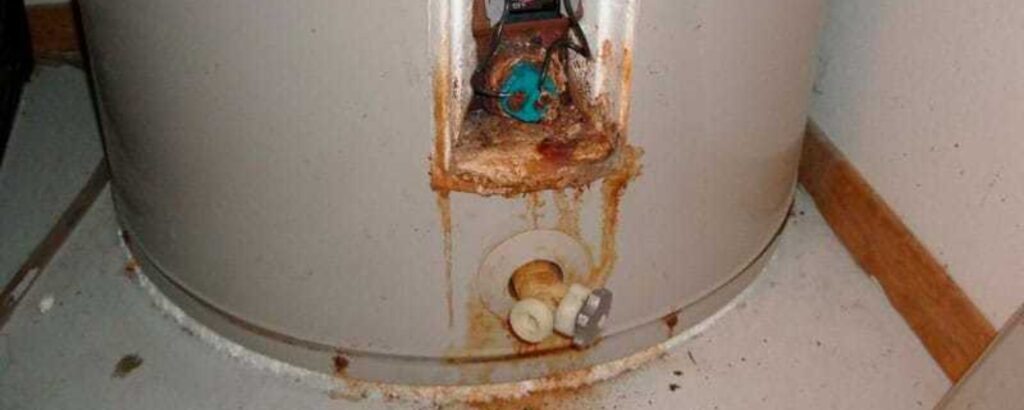
Identifying the indicators of a deteriorating water heater is paramount for gauging whether it is appropriate to proceed with repairs or opt for a replacement.
Here are some common indicators that your water heater may be reaching the end of its Water Heater Lifespan:
1. Inconsistent Water Temperature:
Fluctuations in water temperature can signal issues with the heating element or thermostat. If these problems persist despite adjustments, it may be time to consider a replacement.
2. Rusty Water:
Rusty or discoloured water indicates corrosion inside the tank. As water heaters age, the metal components are more prone to rust, compromising water quality and the unit’s integrity.
3. Strange Noises:
Popping, banging, or rumbling sounds emanating from the water heater may indicate sediment buildup. This accumulation reduces efficiency and can lead to overheating, potentially shortening the Water Heater Lifespan.
4. Leaks:
Any signs of water pooling around the water heater’s base should be addressed immediately. Leaks can result from corroded tanks or faulty valves and may require replacement.
5. Age of the Water Heater:
Knowing your water heater’s age is essential in assessing its remaining Lifespan. If your unit is approaching or has exceeded the average lifespan, it’s wise to consider replacement options.
Repairing vs. Replacing: Making the Decision
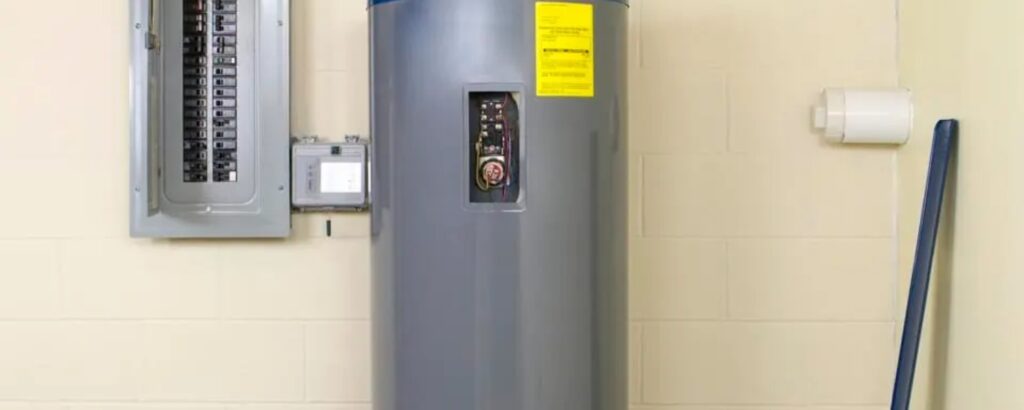
When confronted with water heater issues, homeowners frequently find themselves wrestling with the dilemma of whether to repair or replace it.
Making an informed choice in such situations requires careful consideration of several key factors.
1. Age of the Water Heater
The age of the water heater is a critical factor in the decision-making process.
If your water heater is well beyond its expected Water Heater Lifespan, investing in repairs may only provide a temporary solution.
In such cases, a replacement becomes a more cost-effective and practical choice.
2. Cost of Repairs
Evaluate the cost of repairs compared to a new water heater. If the repair costs are significant and approaching or exceeding the expense of a replacement unit, investing in a new, energy-efficient model may be more economical.
3. Energy Efficiency
Advancements in technology have led to the development of more energy-efficient water heaters.
If your existing unit is outdated, upgrading to a newer model can save long-term energy.
Consider the energy efficiency ratings of various models when determining repairing and replacing your water heater.
4. Frequency of Repairs
If your water heater frequently breaks down or requires constant repairs, it may be a sign that the unit is at the end of its Life Span.
Continual repairs can quickly add up, making a replacement a more sensible choice.
5. Performance and Reliability
The primary function of a water heater is to provide a reliable and consistent hot water supply.
If your current unit is struggling to meet your household’s hot water demands or if you’ve experienced repeated failures, a replacement may be the most reliable solution.
Choosing the Right Replacement
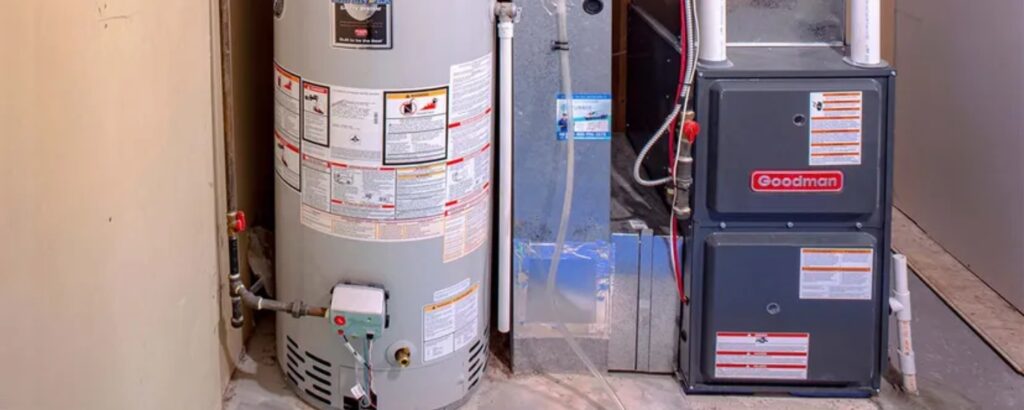
When opting for a water heater replacement, several considerations come into play to ensure you select the most suitable unit for your needs.
1. Type of Water Heater
Consider whether you want to keep a traditional tank water heater or transition to a tankless model.
Tankless water heaters offer on-demand hot water and greater energy efficiency, but they may cost more upfront.
2. Capacity
Determine the appropriate size or capacity of the water heater based on your household’s hot water usage.
An undersized unit may require upsizing to adequately meet the demand, whereas an oversized unit can consume unnecessary energy.
3. Energy Efficiency
Look for water heaters with high energy efficiency ratings, such as the ENERGY STAR certification.
Energy-efficient models save on utility bills and contribute to environmental sustainability.
4. Brand and Warranty
It is paramount to select a trusted brand with a proven track record of manufacturing dependable water heaters.
Moreover, it is crucial to carefully consider the warranty accompanying the new unit, as it serves as a source of reassurance and financial safeguard in the event of unforeseen problems.
Conclusion
Understanding the Water Heater’s Life Span is crucial for homeowners seeking to maintain a reliable hot water supply.
Regular maintenance, attentive monitoring of performance, and prompt attention to signs of failure can help extend the life of your water heater.
When deciding to repair or replace, consider factors such as age, repair costs, energy efficiency, and reliability.
To guarantee your water heater’s prolonged lifespan and optimal performance, it is advisable to engage the services of a skilled and trustworthy professional company.
LifeMechanical can provide expert assistance in assessing your water heater’s condition and recommending appropriate solutions.
Remember, a well-informed decision today can lead to years of uninterrupted hot water and peace of mind tomorrow.


